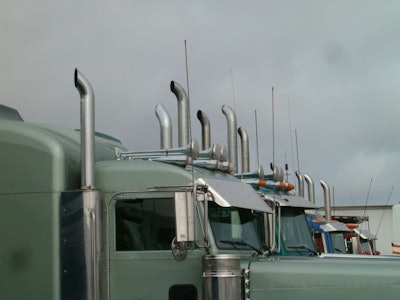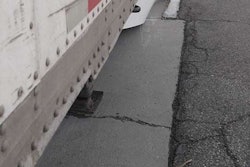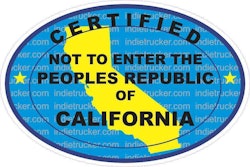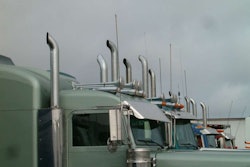

The CCTA has been at the forefront of challenging EPA regulations on the trucking industry in California and nationally, and the group says the “EPA neglected to comply with a nondiscretionary statutory duty” to provide its greenhouse gas emissions standards to the Science Advisory Board, an expert body charged with providing scientific advice to EPA, prior to issuing them.
The U.S. Court of Appeals for the District of Columbia Circuit found CCTA was unable to demonstrate how it and truck buyers were actually harmed by the rule and how vacating it would provide them with relief. The CCTA says the new standards have increased the price of trucks, making them unaffordable for smaller businesses and truck owners.
Overdrive spoke with CCTA Director of Governmental Affairs and Communications Joe Rajkovacz recently about the ruling and what’s next in the litigation.
Here’s the Q&A:
Overdrive: What is it about these greenhouse gas regulations that is creating such a problem for truck owners, and why did the CCTA file suit?
Rajkovacz: When the EPA was in the process of coming up with these GHG regulations, they claimed they were working with the trucking industry, but in reality, they were working with the manufacturers of the heavy duty equipment and the engine manufacturers.

The reason we filed suit is twofold. When the EPA makes regulations that claim, in this case, the cost of the regulation is offset by improved fuel efficiency, they have to run it through the Science Advisory Board. They didn’t do that, which is a violation of procedure.
 Joe Rajkovacz
Joe RajkovaczNo one will argue with improved fuel efficiency, but the claims of this offset have never come through. The EPA regulations have increased the price of trucks dramatically in the last decade, and we have a view that when fuel is the No. 1 cost for truck owners, that’s a strong enough economic incentive to use your resources wisely without having regulations imposed.
Overdrive: What does the CCTA hope to accomplish through litigation?
Rajkovacz: The key thing is that what is going on in the U.S. is nothing more than a revamping of the entire trucking industry under the guise of environmental regulations. They want to reshape the industry, and this regulatory assault isn’t going to stop. They want the world to transition away from fossil fuels.
What’s the cost of this? Owner-operators will be choked out with these rulemakings. Not many one-truck guys can afford a $300,000 or $400,000 truck, but that’s where we’re heading.
I bought a 1997 Peterbilt new for $97,000 and sold it in 2006 for $23,000. A lot of guys don’t buy new because they can buy used for a fraction of the cost. Now, a used truck is going to cost $100,000 because it was so expensive new. That’s why we keep fighting.
Overdrive: What’s next in the litigation process after this setback?
Rajkovacz: There’s going to be a petition filed for a hearing before the entire D.C. circuit. This was in front of a narrow panel of judges. We’re going to ask for a full rehearing.
Nothing about the merits of the case were ever discussed. It was thrown out because of the issue of standing. Did we have standing to sue?
They basically said the end user – the truck owner – is not a stakeholder. They said these are manufacturers standards.
The thing is, the cost of the standards is being passed on to the buyer. Manufacturers aren’t fighting the standards because, in the end, it forces the customers to buy new equipment and they pass on the cost of the regulations to their customers. Truckers have nobody at the table.
Overdrive: Since there was never a hearing on the merits of the case, do you feel like if you can get past the standing issue you can win the case?
Rajkovacz: The EPA violated its own rules by not sending the rule to the Board. We like our chances if we ever get to a hearing on the merits.










